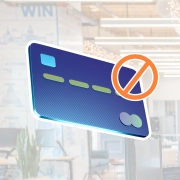How hard is it to get started? I’m sure we’ve all had things that either need to be done, or that we’d like to do, but we put them off – shift them to the bottom of the pile or check out our Facebook feed instead.
When it comes to achieving something great, something worthwhile, taking the first step is often the hardest part. Perhaps it’s not knowing where to begin. Or a sense of overwhelm – the goal feels like this huge inflatable ball – impossible to get your arms around and difficult to know where to grab it.
Procrastination does not equal lazy. It’s likely driven more by fear of uncertainty or failure, or anxiety, which is often closely associated with overwhelm.
But if you’re to make progress on your Financial Autonomy goals, then making a start is essential
I’ve seen quotes and interviews from incredibly successful authors Stephen King and Jodi Piccoult, who both have routines that require them to just sit down and write. It can always be edited latter, but waiting for the inspiration lightning bolt to strike is not the way achieve anything – just make a start!
A common strategy deployed to overcome procrastination is to break down the thing – the goal, task or whatever – into smaller tasks, and then work through these small tasks one at a time. I find Trello really helpful for this so you might like to check that out – it’s free for individual users.
Create one column titled “Things to do” and create cards in there for all the components you can think of that need to be done to reach your goal. Then you create two other columns, one titled “Doing”, and the other “Done”. Work on one card at a time from the “things to do column, and progressively move them across into the “Done” column. It really helps clarify your thinking and overcome the sense of overwhelm, and also self reinforces as your see the “Done” column start to fill up – you feel like you’re making progress.
Tip 1 – Break the goal down into smaller components and deal with one of them at a time
Making a start is hard, but let’s say you’ve taken action on the first tip and broken your goals into small actionable pieces. Another thing you might want to include is a time frame. When will you get these done? I personally wouldn’t set time frames for each small item you’ve identified, because before you start working on them, it’s tough to judge how long it will take – inevitably some tasks will take on the fraction of the time you would have guessed, whilst others are like an old woollen jumper your grandma made you – what starts of a as a single lose thread ends up going on and on the more you pull on it.
So don’t set time frames at the individual task level would be my advice, but I think there is value in setting yourself times frames to achieve broader milestones.
Let’s say your goal is to start up a side line business online. Something to generate some extra income, and potentially even develop into your primary source of income one day if it really took off.
So you break that down into lots of different things that you need to do – register a business name, buy the website address, get a logo designed, etc. It might be helpful to set yourself a deadline that by the 1st of March, I’ll have my idea to a point where I can start showing people and getting realistic feedback. A deadline like that provides flexibility around the individual components, but helps you stay the course, and push on when the energy levels flag a bit.
I should add here too that what you don’t want to do is set unrealistic deadlines. They will just create disappointment and frustration and potentially make you give up on your goal.
Tip 2 – set realistic time frames to get things done
Who hasn’t sat at the dinner table as a kids and seem something on the plate that made you want to run and hide – brussel sprouts, parsnip, fish – we’ve all got something. And what did our wise elder folk advise? Eat the things you don’t like first – don’t leave it to last.
The same can definitely apply here to you overcoming your procrastination. What is the ugliest bit that needs to get done if you are to make progress on your Financial Autonomy goals? Can you tackle that first?
I’ve certainly had instances, and I’d imagine you have too, where there’s some task you’ve been dreading, and so you’ve taken every opportunity to put it off. But the day comes where it just has to get done. So I grudgingly get started, and after 10 minutes realise, this isn’t nearly as ugly as I thought it would be.
And with that ugly bit out the way, it’s downhill from here. You’ve got momentum now.
Tip 3 – can you tackle the worst bit first?
Perfection. A good thing right? When it comes to overcoming procrastination, no. A statement I know is often used in software development, but has broader application, is that perfection is the enemy of progress.
We all want to produce the best that we can, but sometimes striving for perfection can mean nothing gets produced. Much better to do the best you can within a reasonable time frame, and then improve from their – it’s certainly an approach I’ve taken with this podcast. I’m always thinking about how I can improve the audio quality, the structure of the program, how I speak – it goes on and on. The point is, if I didn’t release a single episode until I thought I had these things perfect, there’d never be a Financial Autonomy podcast.
This train of thought aligns with the Lean Start Up methodology that I’ve mentioned in the past around Minimum Viable Product and the Build Measure Learn development cycle. Rather than procrastinate in not launching your idea because you’re worried it’s not perfect, think instead about how you can get your idea out into the world and test whether it works – then improve from there. Perfection is perhaps something to be achieved over time, or at least perhaps aspired to over time, rather than a hurdle that needs to be strided over before you can move forward.
And this can be applied quite broadly. We’re not just thinking about launching a new business idea here. Perhaps it’s doing your household budget, or planning for early retirement. Do the best you can, make a start, and then adjust and improve as you go.
Tip 4 – don’t let the aim of achieving perfection prevent you from making a start, rather, aim to adjust and perfect over time
Ever write yourself up a to-do list either at the start of the day or the night before? Perhaps you’ve felt a bit frustrated that you didn’t achieve what you’d hope to achieve the day before and so you’ve given yourself a good taking to and today you’re going to kick some gaols.
As you achieve those things on your list, do you cross them out? I certainly do. It makes you feel good. You’re getting somewhere.
This is measuring progress and is a really helpful way to overcome procrastination and make progress on your goals.
Ticking off a list makes you feel good. It provides a positive feedback loop.
Tip 5 – measure progress
Could your environment be holding you back? When you were at school, studying for end of year exams, was it better to do it in a quiet place, like perhaps your bedroom, or in the family room with the TV going and people talking all around you?
When you’re looking to put off doing something – procrastinating – distractions are your enemy. Distractions are an enabler.
“I really need to get my paperwork together to lodge my tax return, but, hang on, what’s that coming up next on TV? The latest David Attenbourgh documentary of the life cycle of the African dung beetle?
Sounds like something important.
Perhaps I’ll just give that a watch and then I’ll do the tax stuff afterwards”.
If you spend a good portion of your day in front of a computer, this can be an enormous distraction source. Pop-ups that you’ve receive yet another spam email are not helpful – perhaps you could turn those notifications off. Is social media your Achilles heel. Maybe make a rule with yourself that you won’t check it between 9am and 5pm.
We’re all susceptible to distractions, so if this is a factor in your procrastination, think about how you could escape them.
Tip 6 – is your environment enabling your procrastination?
As I mentioned at the start, in preparing for this piece, I did quite a bit of research. One cause of procrastination that I’d never previously considered was the situation where you feel you need to ask someone else for their wisdom or help.
But you feel uncomfortable asking.
Perhaps you’re worried about interrupting them, and feeling like you’ll look stupid or weak in asking.
So you don’t ask, and that gives you the excuse to put it off – make no progress.
If this is your procrastination road block, then either you need to push past that concern and just ask, or, perhaps more helpfully, figure it out for yourself. If you get onto Youtube and type “how do I …”, chances are you’ll find 300 videos showing you step by step instructions on whatever it is that you need to know. If that doesn’t do it, then you could start Googling. Or perhaps there is someone else you could ask.
Tip 7 – figure it out for yourself
If you’ve played a game on your smart phone recently, chances are that in the course of the game you will have been given some sort of badge, or token, or coin. These are valueless outside of the game, but game makers include them because we humans like rewards. We like recognition that we are making progress or we have achieved something.
So how about using that same approach to develop your procrastination beating strategy?
Recognise progress and reward yourself. So for instance, your motivating reward might be “if I can get 3 months in a row where I live within my budget and build up my savings account as planned, I’m going to have a weekend away down at the beach to celebrate”. Awesome.
Perhaps even you tell someone about the deal you’ve made with yourself, or maybe even invite them along – that would really up the ante. I’m pretty confident it would help you push past your procrastination barrier.
Tip 8 – recognise progress and reward yourself
Finally, if procrastination is something that impacts you, do some self-reflection on what impact procrastination is having on your life, and the circumstances that often lead to procrastination. This insight might point to a strategy or combination of strategies that can enable you to move forward on your Financial Autonomy dream.
I think I’m more susceptible to procrastination in the afternoon than in the morning. I’m fresher in the morning, more energy, and therefore possess more of a willingness to push through.
So by having an awareness of this, when I know there’s something I need to work on that I think will be difficult, and where therefore there’s a chance I might be inclined to put it to the bottom of the pile for another day, I’ll make that the first thing I do in the morning. For me that’s a strategy that works.
I used to have a housemate who had a routine that whenever she got on the phone to have a chat to a friend, she’d light up a cigarette and sit on the back step. Like most smokers, she had a desire to quit smoking, but of course she procrastinated, in no small part no doubt due to the addictive qualities of nicotine. But when she did finally decide to quit, she realised that she needed to change her phone catch-up with friends routine.
Tip 9 – think about the circumstances that often lead to you procrastinating
What can you do to prevent those circumstances from disrupting forward progress?
Well, hopefully that gives you some good ideas to enable you to push through your procrastination barriers. As always I’ve put together a toolkit for this episode and in that I’ve included a simple list of the 9 tips shared here. I’ve also included the Dream Planner template, and listing of useful books that includes info on the Lean Start Up that I mentioned earlier, useful websites that includes a link to the Trello software that I also mentioned, and a piece on SMART goals. So be sure to download that. Our toolkits are free and hopefully really helpful in you taking impactful actions.
Here’s the 9 tips to help you overcome your procrastination demons:
- Break the goal down into smaller components and deal with one of them at a time
- Set realistic time frames to get things done
- Can you tackle the worst bit first?
- Don’t let the aim of achieving perfection prevent you from making a start. Rather, aim to adjust and perfect over time.
- Measure progress.
- Is your environment enabling your procrastination?
- Figure it out for yourself
- Recognise progress and reward yourself
- Think about the circumstances that often lead to you procrastinating.
This article is written by Paul Benson.
Paul Benson can be found on the podcast Financial Autonomy, and is a regular contributor to Fairfax.










